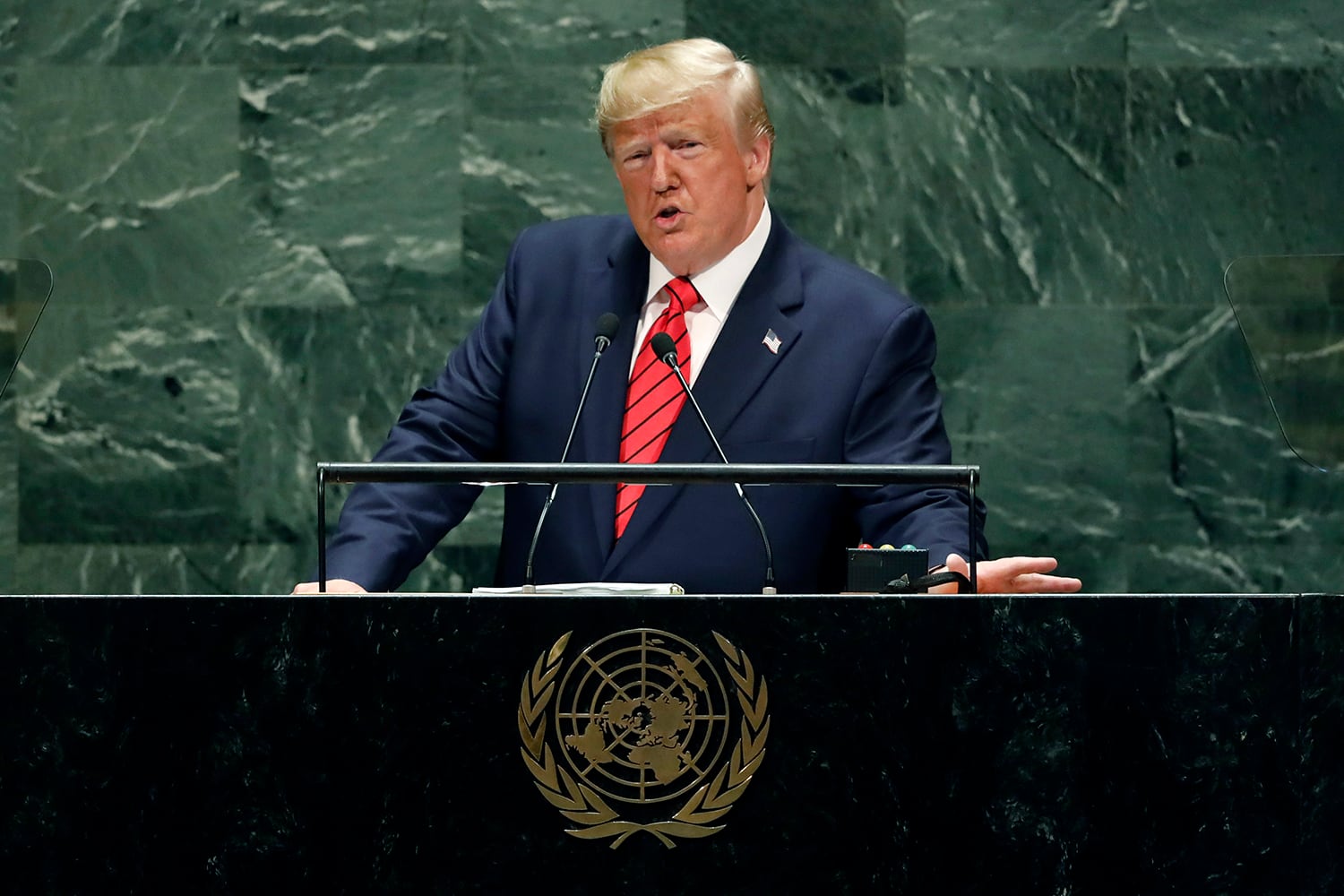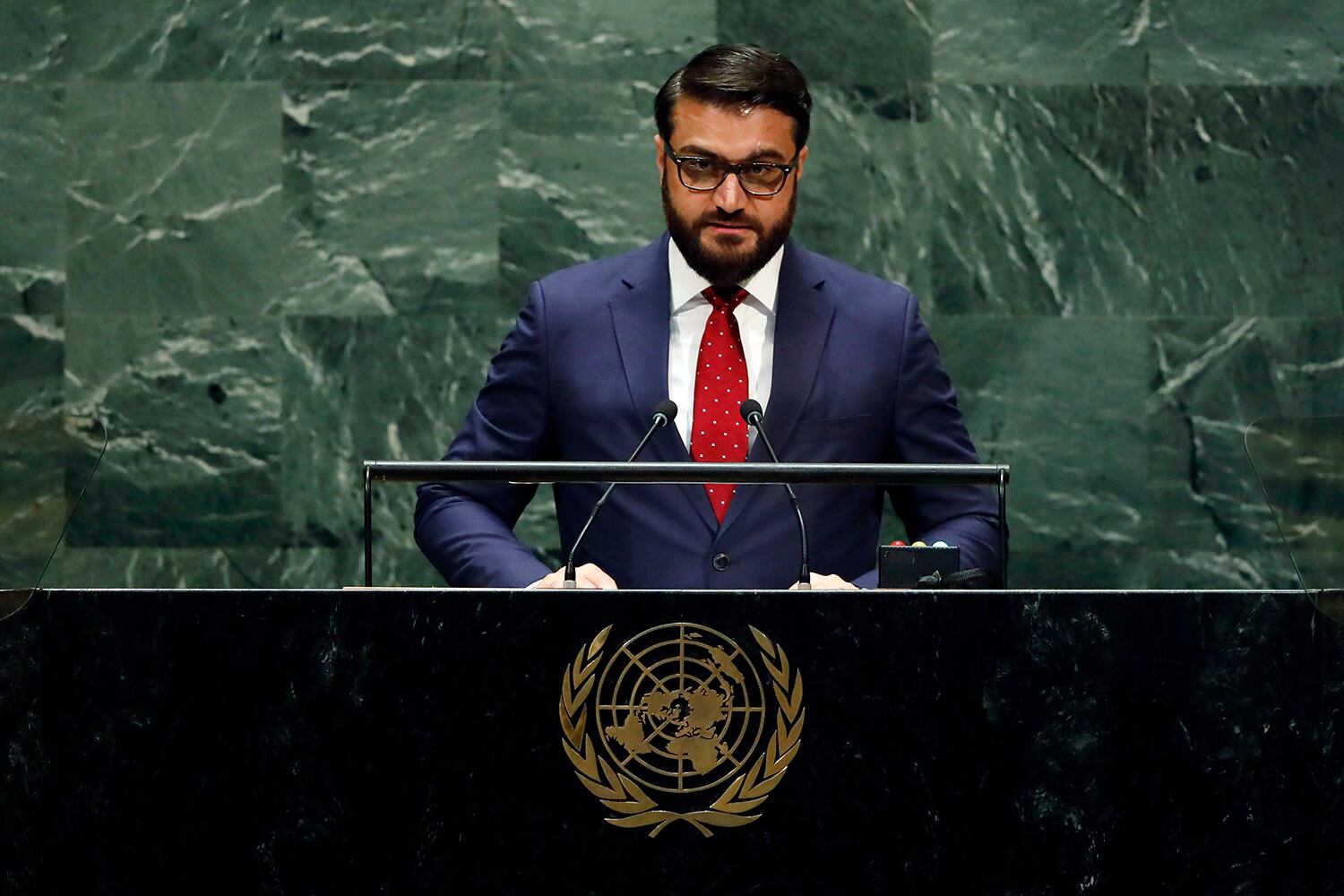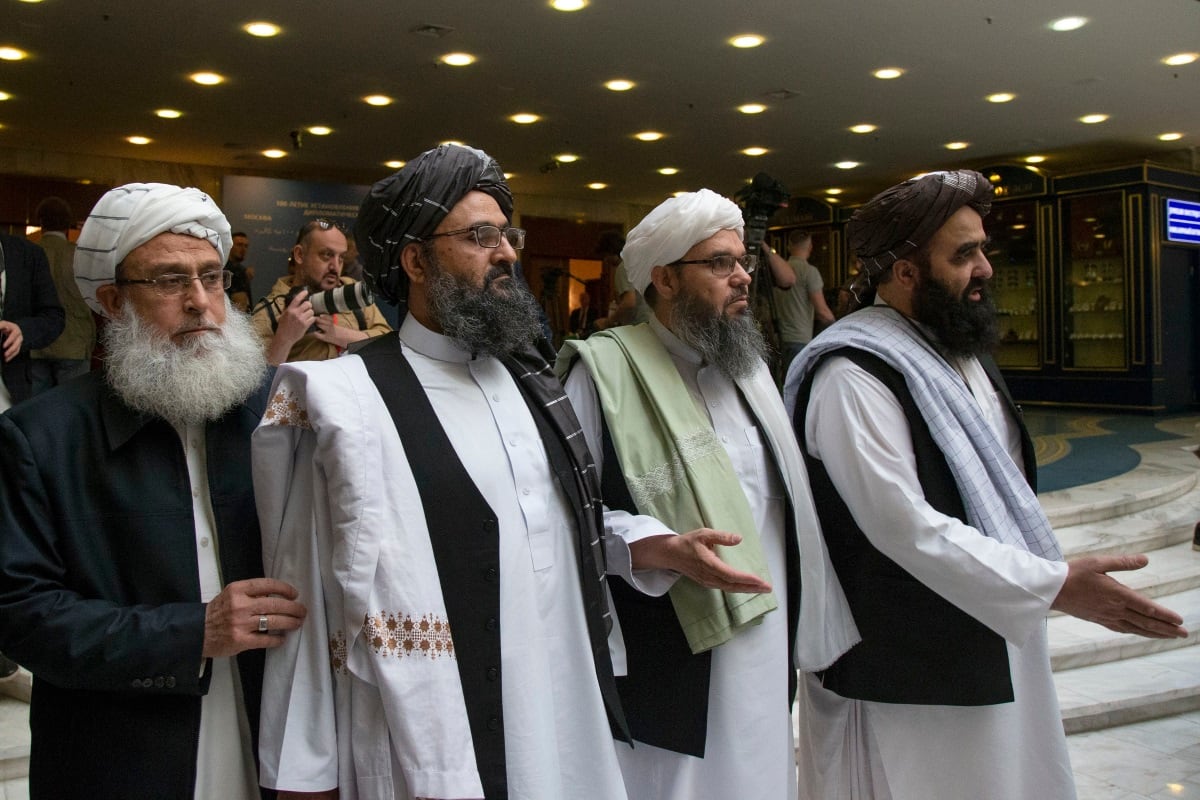UNITED NATIONS — As Afghans await the results of a presidential election roiled by Taliban threats, the government used its platform at the U.N. General Assembly on Monday to tell the insurgents: “Join us in peace, or we will continue to fight.”
Afghanistan was not the only country sending a message: North Korea had one for the United States, saying it was up to Washington whether now-stalled nuclear negotiations “become a window of opportunity or an occasion that will hasten the crisis.”
And even in the final hour of this year’s U.N. gathering of world leaders, Iran and Saudi Arabia traded barbs sharpened by a recent missile and drone strike on major Saudi oil facilities.
Monday’s speeches wrapped up a meeting marked by global worries over the rising tensions in the Persian Gulf region, the changing climate and the very future of the idea of large-scale international cooperation that the U.N. represents.
RELATED

As General Assembly President Tijjani Muhammad-Bande put it in his closing remarks, “The world will not survive for long unless we cultivate the give-and-take spirit” of multilateralism.
Afghanistan’s national security adviser, Hamdullah Mohib, spoke two days after his countrymen voted in a presidential election in which hundreds of polling centers weren’t opened because the country couldn’t secure them against the Taliban. The militants control or hold sway over roughly half the country and warned voters not to go to the polls.
Results of the elections aren’t due for weeks.
Mohib trumpeted the democratic commitment of Afghans who voted despite the threats — some despite having had fingers cut off by the Taliban during prior elections, he noted.
In a country where a new generation of leaders has grown up in wartime, “the opportunities afforded to us through the gains of the past 20 years have allowed us to change hope into something much more powerful — belief,” Mobib said.
“We believe in our abilities to bring about the peace we have hoped for all our lives.”

The path is far from clear. U.S.-Taliban peace talks collapsed earlier this month as a deal seemed imminent to end America’s longest war. It began in 2001 as a U.S. effort to dislodge Afghanistan’s then-ruling Taliban for harboring al-Qaida leader and 9/11 mastermind Osama bin Laden.
The Afghan government had been sidelined in the talks; the Taliban refused to talk directly with an administration the insurgents see as a U.S. puppet.
RELATED

For North Korea, two summits with the U.S. haven’t yielded a definitive plan for ending the North’s nuclear program and the sanctions imposed because of it.
Negotiations have apparently been frozen since a summit between U.S. President Donald Trump and North Korean leader Kim Jong Un broke down in February, though the two met in June at the Korean border in an effort to spur progress.
“The situation on the Korean Peninsula has not come out of the vicious cycle of increased tension, which is entirely attributable to the political and military provocations perpetrated by the U.S.,” North Korean Ambassador Kim Song said.
North Korea complains that the U.S. has boosted sanctions and resumed U.S.-South Korean military drills that Pyongyang has long decried.
At the same time, the North has continued conducting banned weapons tests.
Trump said last week that another summit meeting with Kim “could happen soon” but didn’t elaborate.
Iran and Saudi Arabia took their turns at the podium last week, but a series of bitter rebuttals Monday made clear that airing grievances hadn’t eased them.
Saudi Arabia, the U.S., Britain, France and Germany blame Iran for the Sept. 14 attack that hit key Saudi oil facilities and rattled world oil markets. Iran denies involvement and says Yemen’s Iran-allied Houthi rebels were responsible, as they have claimed.
Iranian U.N. Mission diplomat Khodadad Seifi complained Monday about what he called “unsubstantiated allegations and careless remarks” from the Saudis, while Saudi mission diplomat Mohammed Al Assiri said Iran was traveling a “pathway of hate” in the Persian Gulf region.
Presidents, prime ministers, monarchs and other leaders from 192 of the U.N.'s 193 member states — all except Uzbekistan — said their piece at the General Assembly.
And young activists had their say at climate summits in the days beforehand. In one of the week’s most remarked-upon moments, Swedish 16-year-old Greta Thunberg rebuked world leaders for not doing more to tackle global warming. “How dare you?” she said.
“Let me assure you youth: We hear you!” Muhammad-Bande said Monday.
Associated Press writers Maria Sanminiatelli and Edith M. Lederer contributed to this report.




